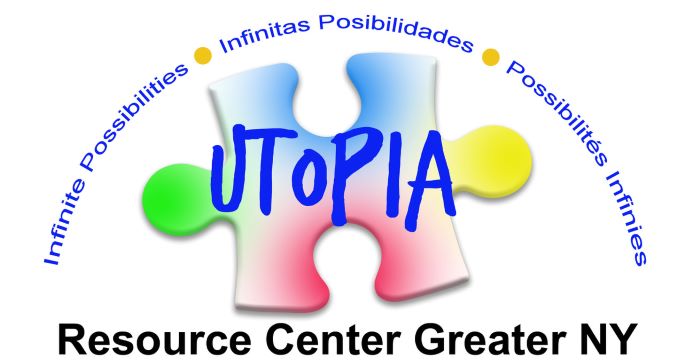Services provided by Utopia Resource Center of Greater NY
Early Childhood Intervention Services (Ages 0-5)
Early childhood intervention services are a critical aspect of our work at URCGNY. We understand that prevention is better than cure, and by addressing the needs of children, families, and individuals early on, we can prevent future challenges. Our early intervention services include comprehensive assessments, therapy services, family support, and referrals to appropriate resources.
We believe that early intervention is crucial for promoting optimal development and ensuring that individuals reach their full potential. By providing early intervention services, we can address challenges such as behavioral difficulties, social-emotional issues, communication difficulties, and developmental delays. This early intervention not only helps individuals overcome these challenges but also provides support to their families.
Parent Education
The primary goal of parent education in the Utopia Early Childhood Intervention Program is to empower parents with the knowledge and skills they need to support their child’s development. By providing parents with education and resources, we aim to enhance their ability to create a nurturing and stimulating environment for their child.
One of the key benefits of parent education is the promotion of positive parent-child interactions. When parents understand the developmental needs of their child, they are better equipped to engage in meaningful and responsive interactions. This fosters a strong bond between the parent and child, which is crucial for the child’s emotional and social development.
Another goal of parent education in the Utopia Early Childhood Intervention Program is to increase parents’ awareness of their child’s unique strengths and challenges. By understanding their child’s individual needs, parents can advocate for appropriate support and interventions. This knowledge also helps parents set realistic expectations and celebrate their child’s achievements.
Parent education also aims to enhance parents’ ability to support their child’s learning and school readiness. By learning about various strategies and activities, parents can actively engage their child in learning experiences both at home and in the community. This involvement sets a solid foundation for the child’s academic success.
Additionally, parent education in the Utopia Early Childhood Intervention Program provides parents with a supportive network of other parents and professionals. This creates opportunities for collaboration, shared experiences, and the exchange of ideas. It also helps parents feel connected and supported throughout their parenting journey.
Support Groups
The following are goals of support groups:
01
Emotional Support
The primary goal of support groups in the Utopia Early Childhood Intervention Program is to provide emotional support to children and their families. The challenges faced by families with children in need of early childhood intervention can be overwhelming. Support groups create a safe space where individuals can share their experiences, express their emotions, and receive empathy from others who may be going through similar situations. This emotional support helps families cope with the difficulties they encounter, reducing feelings of isolation and promoting overall well-being.
02
Information Sharing
Support groups also serve as a platform for sharing information and resources related to early childhood intervention. Parents and caregivers can exchange knowledge about various therapies, educational programs, and community services available to support their child’s development. This information sharing empowers families with valuable insights, enabling them to make informed decisions and access the most appropriate interventions for their children.
03
Skill Building
Another important goal of support groups is to facilitate skill-building among participants. Parents and caregivers can learn practical strategies and techniques from professionals and experienced individuals within the group. These skills may include behavior management techniques, communication strategies, and methods to enhance a child’s cognitive, social, and emotional development. By acquiring these skills, parents and caregivers gain confidence in supporting their child’s growth and development, leading to improved outcomes.
The following are benefits of Support Groups:
01
Peer Support
Support groups provide a unique opportunity for individuals to connect with others who are going through similar experiences. This peer support fosters a sense of belonging and understanding, as participants can relate to each other’s challenges and triumphs. The friendships formed within support groups often extend beyond the sessions, creating a network of support that individuals can rely on throughout their journey.
02
Increased Resilience
Through participation in support groups, families develop resilience to face the obstacles associated with early childhood intervention. The encouragement and shared experiences within the group inspire individuals to persevere despite setbacks and challenges. As a result, families become more resilient, adapting to changes and finding strength in their collective experiences.
03
Enhanced Well-being
Support groups contribute to improved overall well-being for both children and their families. By addressing emotional needs, reducing stress, and fostering a sense of community, support groups promote mental and emotional well-being. Additionally, the knowledge gained and skills acquired through these groups empower families to actively participate in their child’s intervention, leading to positive developmental outcomes.
Workforce Development
Workforce development is another crucial aspect of our mission at URCGNY. We are committed to creating pathways for personal and professional growth for individuals in our community. Our workforce development programs focus on skill-building, training, and job placement assistance.
We understand that employment is a vital factor in promoting self-sufficiency and financial stability. Our goal is to provide individuals with the necessary skills and opportunities to secure meaningful and sustainable employment. We offer a range of training programs tailored to meet the needs of various industries and professions. Whether it is technical training, soft skills training, or leadership development, we aim to equip individuals with the tools they need to succeed in today’s competitive job market.
Early intervention services include speech-language therapy, occupational therapy, and physical therapy. We also offer specialized services such as feeding therapy and preschool early intervention programs. In order to promote success in daily life, our therapists work closely with children.
In addition to therapeutic services, Utopia Resource Center early intervention also provides family support and education. We’re here to help families make sense of the challenges of raising a child with special needs through counseling and guidance. Additionally, we provide resources and referrals to assist families in finding help.
The benefits of our early intervention programs extend not only to children, but also to their families. We provide respite care services to caregivers, allowing them to recharge and take care of themselves. Additionally, we offer training and workshops to equip parents and professionals with the knowledge and skills they need to provide the best possible care for children.
- Security Guard
- Customer Service
- CNA Home Health Aid
- HHA
- Teaching Assistant
- Child Care Training (Becoming a Provider)
- Child Care Service Providers:
Workshops
The Utopia Early Childhood Intervention Program offers a wide range of workshops designed to meet the diverse needs of professionals working with young children and their families. These workshops cover a wide range of topics, nutritional workshops, early intervention strategies, early intervention curriculum, early childhood development, family engagement, and therapeutic interventions.
Each workshop is designed to foster collaboration and build the capacity of professionals working in the field. By participating in these workshops, participants gain valuable insights and information that can be applied in their daily practice.
Webinars
Webinars are an integral part of the Utopia Early Childhood Intervention Program, serving as a powerful tool to achieve its goals and provide numerous benefits. This document outlines the goals and benefits of webinars within the program.
The following are goals of webinars:
01
Knowledge Dissemination
The primary goal of webinars in the Utopia Early Childhood Intervention Program is to disseminate valuable knowledge and information. Through these online sessions, participants gain access to relevant and evidence-based content related to early childhood intervention. This empowers educators, parents, and caregivers with the necessary tools and insights to support children’s development effectively.
02
Professional Development
Webinars are designed to support the professional development of individuals involved in early childhood intervention. By attending these sessions, participants can enhance their understanding of best practices, emerging trends, and innovative strategies in the field. This continuous learning contributes to the overall growth and expertise of professionals, ultimately benefiting the children they work with.
03
Collaboration and Networking
The Utopia Early Childhood Intervention Program recognizes the importance of collaboration and networking among professionals in the field. Webinars provide a platform for experts, practitioners, and stakeholders to come together, share experiences, exchange ideas, and build connections. This collaborative environment fosters innovation and enables the program to stay up-to-date with the latest developments in early childhood intervention.
The following are benefits of webinars:
01
Accessibility
Webinars offer a flexible and accessible mode of learning, overcoming geographical barriers. Participants can attend these sessions from anywhere in the world, as long as they have an internet connection. This accessibility ensures that valuable knowledge reaches a wider audience, including those in remote areas, who may otherwise face challenges in accessing training opportunities.
02
Convenience
With webinars, participants have the convenience of attending sessions at their own pace and schedule. These online sessions can be recorded and made available for on-demand viewing, allowing individuals to revisit the content or catch up on missed sessions. This flexibility accommodates the busy schedules of educators, parents, and caregivers, ensuring they can benefit from the program without any time constraints.
03
Cost-Effective
Webinars significantly reduce the costs associated with traditional in-person training or conferences. Participants save on travel expenses, accommodation, and other logistical costs. This cost-effectiveness makes the Utopia Early Childhood Intervention Program more accessible to a broader audience, including those with limited financial resources.
04
Engagement and Interaction
Webinars incorporate interactive features, such as live chat, polls, and Q&A sessions, fostering active engagement between presenters and participants. This interactivity enhances the learning experience and allows for personalized interaction, ensuring that attendees can clarify doubts, seek further information, and engage in meaningful discussions.



